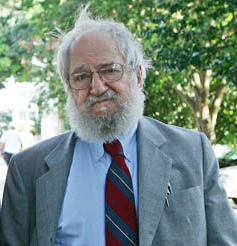|
Constructionism (other)
{{disambig ...
Constructionism may refer to * Constructionism (learning theory), an educational philosophy developed by Seymour Papert * Social constructionism, a theory of how social phenomena or objects of consciousness develop in social contexts * Strict constructionism, a conservative type of legal or constitutional interpretation See also * Constructivism (other) Constructivism may refer to: Art and architecture * Constructivism (art), an early 20th-century artistic movement that extols art as a practice for social purposes * Constructivist architecture, an architectural movement in Russia in the 1920s a ... [...More Info...] [...Related Items...] OR: [Wikipedia] [Google] [Baidu] |
Constructionism (learning Theory)
Constructionist learning is the creation by learners of mental models to understand the world around them. Constructionism advocates student-centered, discovery learning where students use what they already know, to acquire more knowledge.Alesandrini, K. & Larson, L. (2002). Teachers bridge to constructivism. The Clearing House, 119–121. Students learn through participation in project-based learning where they make connections between different ideas and areas of knowledge facilitated by the teacher through coaching rather than using lectures or step-by-step guidance. Further, constructionism holds that learning can happen most effectively when people are active in making tangible objects in the real world. In this sense, constructionism is connected with experiential learning and builds on Jean Piaget's epistemological theory of constructivism. Seymour Papert defined constructionism in a proposal to the National Science Foundation titled ''Constructionism: A New Opportunit ... [...More Info...] [...Related Items...] OR: [Wikipedia] [Google] [Baidu] |
Social Constructionism
Social constructionism is a theory in sociology, social ontology, and communication theory which proposes that certain ideas about physical reality arise from collaborative consensus, instead of pure observation of said reality. The theory centers on the notion that meanings are developed in coordination with others rather than separately by each individual. It has often been characterised as neo- Marxian or also as a neo-Kantian theory, in that social constructionism replaces the transcendental subject with a concept of society that is at the same time descriptive and normative. While some social constructs are obvious, for instance money or the concept of currency, in that people have agreed to give it importance/value, others are controversial and hotly debated, such as the concept of self/self-identity. This articulates the view that people in society construct ideas or concepts that may not exist without the existence of people or language to validate those concepts. ... [...More Info...] [...Related Items...] OR: [Wikipedia] [Google] [Baidu] |
Strict Constructionism
In the United States, strict constructionism is a particular legal philosophy of judicial interpretation that limits or restricts such interpretation only to the exact wording of the law (namely the Constitution). Strict sense of the term Strict construction requires a judge to apply the text only as it is written. Once the court has a clear meaning of the text, no further investigation is required. Judges—in this view—should avoid drawing inferences from a statute or constitution and focus only on the text itself. Jurist Hugo Black (1886–1971) argued that the First Amendment's injunction, that ''Congress shall make no law'' (against certain civil liberties), should be construed strictly: ''no law'', thought Black, admits ''no exceptions''. However, "strict construction" is not a synonym for textualism or originalism. Supreme Court Justice Antonin Scalia, a major proponent of textualism, said that "no one ought to be" a strict constructionist, although to be a strict ... [...More Info...] [...Related Items...] OR: [Wikipedia] [Google] [Baidu] |
